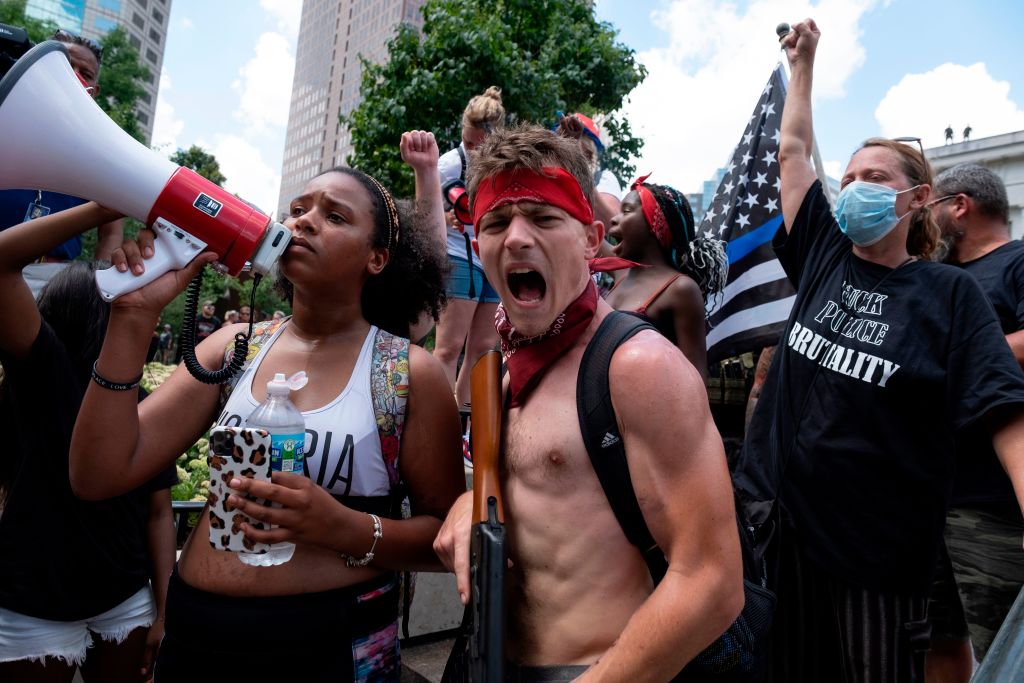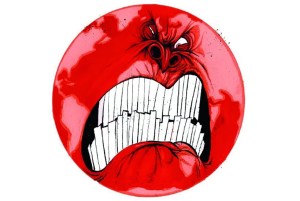Laramie, Wyoming
A century ago, while the Twenties were in full roar, H.L. Mencken solemnly predicted that the United States would ‘blow up’ in a hundred years. Doubtless few readers believed him at the time, yet it is possible that Madame Blavatsky could not have prophesied more accurately than the Sage of Baltimore did.
Though the American Republic is long dead, the country as a nation-state continues to stagger on, though for how long now has become a debatable question among the punditry. Professor Gary Saul Morson of Northwestern University, interviewed in June in the Wall Street Journal, stated that, ‘Obviously we haven’t arrived at anything like what Lenin called a “revolutionary situation”,’ an unassailable assessment when judged by a strict application of classic Marxist theory, which holds that the prior formation of a fully developed proletariat is the essential precondition of the revolutionary moment. But this particular historical development has not occurred, here in America or elsewhere. It is, in point of fact, un-developing: the social and political process has demonstrably been going backward since the second half of the 19th century.
Differently expressed, three-quarters of the Western world has become the new proletariat — Ortega’s ‘mass man’ — even if it has pretty well abandoned the eponymous aspect of its identity by preferring abortion to birthing babies. The mass man has no ‘class consciousness’ for the understandable reason that he does not consider himself a proletarian and would make his mark (or three) in the voting booth against any politician he suspected of mistaking him for one. He is, in his own mind, perfect: Exhibit A among the vast collection of biological evidence that can be summoned to prove that Darwin was right. Owing to efforts by himself and his fellows, the classless society has been achieved at last after millennia of strife, blood and tears. Everyone wants to think like him, talk like him and dress like him, though with a few slight concessions to slovenly chic as observed by the more affluent and sophisticated of members of the brotherhood.
After the Mass Men, we observe among the other classes of contemporary society the Masters of the Universe, painstakingly described and analyzed by Tom Wolfe; the Intelligentsia (academics and the media); and the Cave Anarchists, who are presently reveling in the role of revolutionary street mob in Paris under the Terror, a substantial portion of whom — having never read Rousseau or Voltaire, being unable to enumerate the Louis they were suffering under and preferring to knit al fresco in the Place de la Révolution rather than at home in their squalid dens — was out in the wide boulevards for the cheap pleasures of displaying their mutual fraternity, exercising the liberty granted them as their birthright by the Supreme Being, drinking bad wine, breaking windows and looting shops and savoring the salt smell of fresh blood.
Professor Morson, a historian and critic of Russian literature, finds the political situation in America today ‘astonishingly like late 19th-, early 20th-century Russia, when basically the entire educated class felt you simply had to be against the regime or some sort of revolutionary’. As sophisticated theorists, they despised the aristocrats and wealthy men of commerce who ruled society and directed the state from what they believed was rightly their own exalted position in society. Their hatred for the dominant classes was matched only by their contempt for the laborers and peasants whose welfare they pretended to champion. Lenin had a similar contempt for these people, whom he nevertheless identified as the indispensable agents of the coming revolution. Today, the American Intelligentsia is equally contemptuous of the masses. In its mind, the revolutionary agent is not the honest working men and women of the new proletariat. It is the Cave Anarchists, the violent and lawless underclass, plus themselves, acting partly as their directors but chiefly as the exploiters of their useful idiots.
***
A print and digital subscription to The Spectator is just $7.99 a month
***
The alliance between the two groups, while informal, is also entirely natural and indeed inevitable, owing to their shared hatreds and anarchistic impulses. The revolutionary Intelligentsia believes it is entitled to the political power the bogus business and financial elite illegitimately enjoys after usurping it for itself; the Cave Anarchists that a history of racial discrimination and class warfare gives them a right to everyone’s else property, whether it is held by whites, blacks or Eskimos with an unfair share of power boats, exploding harpoons and ulus. The intellectual class is determined that, if it is to be denied the power to realize the ideological agenda it cherishes, it will be rewarded with generalized annihilation instead. The Cave Anarchists, who believe in nothing but whatever they happen to desire at the moment, are prepared to destroy anything and anyone that stands in the way of their getting it.
Taken by themselves, the Cave Anarchists and the Intelligentsia do not amount to a social force sufficient to create a revolutionary situation. The first group doesn’t know, or care, about such abstruse considerations. The second does, and it has been at considerable pains these past few decades to rally the hated corporate and political establishments to the ideological cause, partly by persuasion but mainly by intimidation and even outright threats. As all revolutionists know, the bourgeois class — the haute bourgeoisie especially — is the most cowardly and easily intimidated in history: by the revolutionaries themselves, of course, but even more by its own members, who value middle class respectability and approval second only to the goods of this world. Today the Intelligentsia is more established, highly esteemed and overrated than it has been by any society since Germany in the late 19th century, a fact not lost on the ruling class, many of whose wealthiest and most powerful representatives have taken degrees from it, and, along with the sheepskins and parchments, a large part of their self-esteem which inevitably suffers from the Intelligentsia’s disapproval, and even more so from its boycotts. Though the Cave Anarchists have no such hold on the bourgeoisie’s self-image, commercial boycotts are another matter, especially when they are directed at the manufacturers of highly prized items like running shoes and other expensive sports paraphernalia.
Professor Morson has observed that when people are encouraged (or coerced) into supporting what they don’t believe in, they will end by acquiescing in things they understand to be wrong, lacking some ‘moral force’ to correct them. Alas, in this post-Christian age there is no longer any such thing sufficient to the task, save for the revolutionary force itself; and it has other objectives in mind.
This article is in The Spectator’s August 2020 US edition.


















